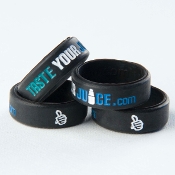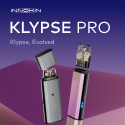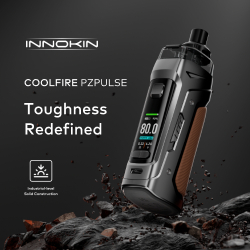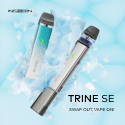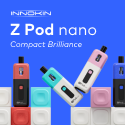By Dimitris Agrafiotis…
FDA Efforts to ban flavors fails to address biggest issue— JUUL
We all agree, we want to prevent teens from accessing or using vape products. But the Food and Drug Administration’s focus on limiting flavors are misguided and counterproductive to improving public health— and ultimately won’t solve the problem of youth vaping.
The FDA has suggested new regulations to limit the sale of flavored vape products, effectively removing a majority of vape products from the marketplace and eliminating a powerful alternative that is helping adult Tennesseans to stop smoking cigarettes.
Vape flavors have been available as far back as 2009, yet they are blamed for the recent increase in youth use in the last three years.
Keeping vape products out of the hands of youth is critical, which is why the 100+ members of the Tennessee Smoke Free Association absolutely support FDA actions to increase enforcement against bad actors selling or marketing illegally to minors.
We believe the FDA should focus policy efforts on a broader approach taking into account all of the potential causes contributing to youth initiation including social media, retailer enforcement of existing age-restrictions, straw purchases, etc.
TSFA applauds the recent FDA enforcement efforts to root out bad actors and crack down on those companies using packaging marketing or advertising gimmicks that imitate kid-appealing foods or that are otherwise unnecessarily appealing to minors. The agency can and should do more to prevent companies from marketing or selling to youth, focusing on bad practices and the point-of sale.
Specifically, the agency should consider the dominating trend of youth vaping, an attraction to high nicotine salt concentrations in pod-systems, like JUUL.
Introduced in 2015, JUUL announced it had the unique ability to deliver nicotine in a similar fashion to traditional combustible cigarettes through nicotine salts. JUUL pods give a stronger hit of nicotine and are less customizable than other vapor products.
Today, JUUL makes up over 75% of the US Market. It is no accident that when JUUL exploded, teen vape use increased.
According to some reports, teens are sixteen times more likely to use JUUL than 25-34 year olds. Another recent report said that a majority of the brand’s Twitter followers last year were teens.
The company has said it is taking these concerns seriously, erasing their social media accounts and implementing strict age-verification processes on their website.
It’s important that we all recognize that JUUL is not the entire vape industry.
Vaping started because adult smokers wanted an alternative to the traditional quit methods. From our association of independent vape shops across Tennessee, we hear stories about how lifelong smokers finally found relief by switching to vaping— and for many, having the ability to customize flavors can make the difference.
There are much more effective ways to protect youth from accessing vape products without eliminating a key lifeline helping hundreds of thousands of adult smokers stop smoking.
Eliminating vape flavors may sound like a quick fix, but in the end, we know it will not stick.














 Store
Store
